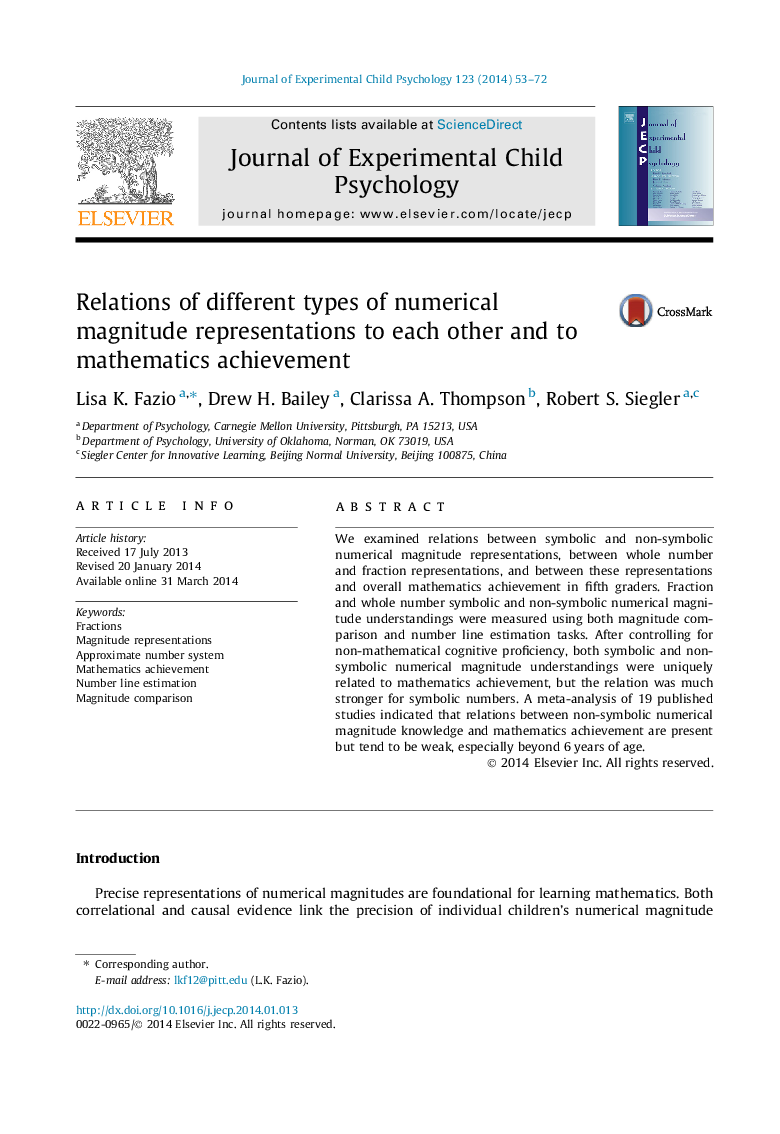| Article ID | Journal | Published Year | Pages | File Type |
|---|---|---|---|---|
| 7275512 | Journal of Experimental Child Psychology | 2014 | 20 Pages |
Abstract
We examined relations between symbolic and non-symbolic numerical magnitude representations, between whole number and fraction representations, and between these representations and overall mathematics achievement in fifth graders. Fraction and whole number symbolic and non-symbolic numerical magnitude understandings were measured using both magnitude comparison and number line estimation tasks. After controlling for non-mathematical cognitive proficiency, both symbolic and non-symbolic numerical magnitude understandings were uniquely related to mathematics achievement, but the relation was much stronger for symbolic numbers. A meta-analysis of 19 published studies indicated that relations between non-symbolic numerical magnitude knowledge and mathematics achievement are present but tend to be weak, especially beyond 6Â years of age.
Keywords
Related Topics
Social Sciences and Humanities
Psychology
Developmental and Educational Psychology
Authors
Lisa K. Fazio, Drew H. Bailey, Clarissa A. Thompson, Robert S. Siegler,
